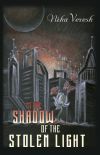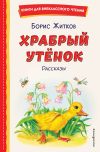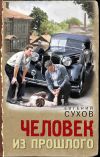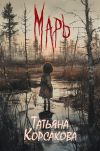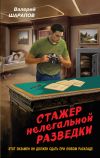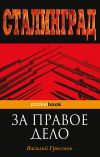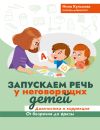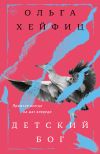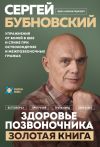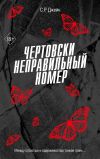
Автор книги: Михаил Сарапов
Жанр: Иностранные языки, Наука и Образование
Возрастные ограничения: +16
сообщить о неприемлемом содержимом
Текущая страница: 3 (всего у книги 20 страниц) [доступный отрывок для чтения: 7 страниц]

From practical science to mental philosophy; from electricity in the wire to electricity in the nerve; from Watts to Mesmer, from Mesmer to Reichenbach, from Reichenbach to Swedenborg, Spinoza, Condillac, Descartes, Berkeley, Aristotle, Plato, and the Magi and mystics of the East, were transitions which, however bewildering in their variety and scope, seemed easy and harmonious upon his lips as sequences in music. By-and-by – I forget now by what link of conjecture or illustration – he passed on to that field which lies beyond the boundary line of even conjectural philosophy, and reaches no man knows whither. He spoke of the soul and its aspirations; of the spirit and its powers; of second sight; of prophecy; of those phenomena which, under the names of ghosts, spectres, and supernatural appearances, have been denied by the sceptics and attested by the credulous, of all ages.
‘The world,’ he said, ‘grows hourly more and more sceptical of all that lies beyond its own narrow radius (мир, – сказал он, – ежечасно становится все более и более скептически /настроенным по отношению/ ко всему, что лежит за пределами его узкого горизонта; radius – радиус); and our men of science foster the fatal tendency (и наши ученые: «люди науки» потворствуют этой фатальной тенденции; to foster – воспитывать, обучать, растить; поощрять, побуждать, стимулировать). They condemn as fable all that resists experiment (они клеймят как вымысел все, что невозможно экспериментально подтвердить: «что оказывает сопротивление эксперименту»; to condemn – осуждать, порицать; выносить приговор; fable – басня; миф, легенда; ложь, вранье). They reject as false all that cannot be brought to the test of the laboratory or the dissecting-room (они отвергают как ложное все, что нельзя подвергнуть лабораторному тесту = анализу или /препарировать/ на анатомическом столе; to bring – приносить; доставлять; to dissect – разрезать, рассекать; /мед./ анатомировать, вскрывать, препарировать). Against what superstition have they waged so long and obstinate a war, as against the belief in apparitions (против какого еще суеверия они вели столь /же/ долгую и упрямую войну, как против веры в привидения)? And yet what superstition has maintained its hold upon the minds of men so long and so firmly (и, тем не менее, какое еще суеверие столь долго и столь прочно сохраняло свою хватку на умах людей; to maintain – поддерживать, сохранять /в состоянии, которое имеется на данный момент/)? Show me any fact in physics, in history, in archaeology (покажите мне любой /другой/ факт в физике, в истории, в археологии), which is supported by testimony so wide and so various (который подтверждается столь /же/ многочисленными свидетельствами самой разнообразной публики: «который поддерживается свидетельством таким же широким и таким же разнообразным»; to support – поддерживать, подпирать; подтверждать). Attested by all races of men (подтверждаемый всеми человеческими расами), in all ages (во все времена; age – возраст; век; период, эпоха), and in all climates (во всех регионах; climate – климат; район с определенным климатом), by the soberest sages of antiquity (самыми скептичными мудрецами античности; sober – трезвый; рассудительный; здравомыслящий), by the rudest savage of today (самыми отсталыми дикарями наших дней; rude – невежественный), by the Christian (христианами), the Pagan (язычниками), the Pantheist (пантеистами), the Materialist (материалистами), this phenomenon is treated as a nursery tale by the philosophers of our century (этот феномен расценивается как детская сказка учеными нашего времени; to treat – обращаться, обходиться; трактовать; рассматривать; philosopher = natural philosopher). Circumstantial evidence weighs with them as a feather in the balance (косвенные доказательства на их весах весят /не больше/ перышка; circumstantial – зависящий от обстоятельств; побочный, косвенный). The comparison of causes with effects (сравнение причин и следствий), however valuable in physical science (каким бы ценным /оно ни считалось/ в науке; physical science – отрасль знания, имеющая дело с неживой материей: физика, химия, астрономия, геология), is put aside as worthless and unreliable (отметается как ничего не стоящее и ненадежное; to put aside – отбрасывать; стараться не замечать). The evidence of competent witnesses, however conclusive in a court of justice, counts for nothing (квалифицированные свидетельские показания, какими бы решающими они ни считались в суде, ничего не значат; evidence – ясность, наглядность, очевидность; свидетельское показание; competent – осведомленный, сведущий, компетентный; witness – свидетель, очевидец; to count – иметь значение, быть важным; считаться; идти в расчет). He who pauses before he pronounces, is condemned as a trifler (тот, кто промедлит, прежде чем произнести свое суждение, порицается как несерьезный человек; to pronounce – объявлять; заявлять; выносить /решение/; trifle – мелочь, пустяк; to trifle – вести себя легкомысленно; заниматься пустяками; trifler – тот, кто занимается пустяками). He who believes, is a dreamer or a fool (тот, кто верит, мечтатель или дурак).’

‘The world,’ he said, ‘grows hourly more and more sceptical of all that lies beyond its own narrow radius; and our men of science foster the fatal tendency. They condemn as fable all that resists experiment. They reject as false all that cannot be brought to the test of the laboratory or the dissecting-room. Against what superstition have they waged so long and obstinate a war, as against the belief in apparitions? And yet what superstition has maintained its hold upon the minds of men so long and so firmly? Show me any fact in physics, in history, in archaeology, which is supported by testimony so wide and so various. Attested by all races of men, in all ages, and in all climates, by the soberest sages of antiquity, by the rudest savage of today, by the Christian, the Pagan, the Pantheist, the Materialist, this phenomenon is treated as a nursery tale by the philosophers of our century. Circumstantial evidence weighs with them as a feather in the balance. The comparison of causes with effects, however valuable in physical science, is put aside as worthless and unreliable. The evidence of competent witnesses, however conclusive in a court of justice, counts for nothing. He who pauses before he pronounces, is condemned as a trifler. He who believes, is a dreamer or a fool.’
He spoke with bitterness (он говорил с горечью), and, having said thus, relapsed for some minutes into silence (и, сказав это, на несколько минут погрузился в молчание; to relapse – впадать /в какое-либо состояние/). Presently he raised his head from his hands (вскоре он выпрямился: «поднял голову со своих рук»), and added, with an altered voice and manner (и добавил, изменившимся голосом и в другой манере),
‘I, sir, paused, investigated, believed (я, сэр, колебался, исследовал, поверил; pause – пауза, перерыв; замешательство, колебания), and was not ashamed to state my convictions to the world (и не постыдился изложить миру свои убеждения; to state – заявлять; формулировать; излагать). I, too, was branded as a visionary (я тоже был заклеймен как мечтатель; visionary – мечтатель; выдумщик, фантазер), held up to ridicule by my contemporaries (выставлен на посмешище моими современниками; to hold up – выставлять, показывать; to ridicule – осмеивать; поднимать на смех), and hooted from that field of science in which I had laboured with honour during all the best years of my life (и был изгнан из той отрасли науки, в которой я пользуясь уважением/честно трудился на протяжении лучших лет своей жизни; hoot – крик совы; гиканье; to hoot – гикать, улюлюкать; прогонять, изгонять с гиканьем; honour – слава, почет, честь; почтение, уважение; благородство, честность). These things happened just three-and-twenty years ago (это случилось как раз двадцать три года назад). Since then, I have lived as you see me living now (с тех пор я живу так, как вы сейчас видите), and the world has forgotten me, as I have forgotten the world (а мир забыл меня, как я забыл мир; to forget). You have my history (вы знаете теперь мою историю).’
‘It is a very sad one (очень печальная история),’ I murmured, scarcely knowing what to answer (пробормотал я, едва представляя, что тут можно сказать; to know – знать; to answer – отвечать).
‘It is a very common one,’ he replied (вполне обычная история, – ответил он; very – очень). ‘I have only suffered for the truth (я только пострадал за правду), as many a better and wiser man has suffered before me (как многие лучше и мудрее /меня/ пострадали до меня).’

He spoke with bitterness, and, having said thus, relapsed for some minutes into silence. Presently he raised his head from his hands, and added, with an altered voice and manner,
‘I, sir, paused, investigated, believed, and was not ashamed to state my convictions to the world. I, too, was branded as a visionary, held up to ridicule by my contemporaries, and hooted from that field of science in which I had laboured with honour during all the best years of my life. These things happened just three-and-twenty years ago. Since then, I have lived as you see me living now, and the world has forgotten me, as I have forgotten the world. You have my history.’
‘It is a very sad one,’ I murmured, scarcely knowing what to answer.
‘It is a very common one,’ he replied. ‘I have only suffered for the truth, as many a better and wiser man has suffered before me.’
He rose, as if desirous of ending the conversation (он поднялся, словно желая положить конец беседе; desirous of smth. – желающий, жаждущий /чего-либо/), and went over to the window (и подошел к окну).
‘It has ceased snowing,’ he observed, as he dropped the curtain (снег перестал, – заметил он, опустив штору; drop – капля; to drop – капать; ронять; бросать), and came back to the fireside (и вернулся к камину).
‘Ceased!’ I exclaimed, starting eagerly to my feet (перестал! – воскликнул я, живо вскочив на ноги; to start – начинать; стартовать; вскакивать). ‘Oh, if it were only possible (о, если бы только это было возможным) – but no! it is hopeless (но нет, это невозможно; hopeless – безнадежный; невозможный, невыполнимый). Even if I could find my way across the moor, I could not walk twenty miles tonight (если бы даже я смог найти дорогу через пустошь, я не в состоянии пройти пешком двадцать миль этим вечером).’
‘Walk twenty miles tonight!’ repeated my host (пройти пешком двадцать миль! – повторил мой хозяин). ‘What are you thinking of (о чем вы /только/ думаете)?’
‘Of my wife,’ I replied, impatiently (о моей жене, – нетерпеливо ответил я). ‘Of my young wife (о моей молодой жене), who does not know that I have lost my way (которая не знает, что я заблудился; to lose), and who is at this moment breaking her heart with suspense and terror (и у которой в эту самую минуту разрывается сердце от неизвестности и от страха).’
‘Where is she (а где она)?’
‘At Dwolding, twenty miles away (в Двоулдинге, в двадцати милях отсюда).’

He rose, as if desirous of ending the conversation, and went over to the window.
‘It has ceased snowing,’ he observed, as he dropped the curtain, and came back to the fireside.
‘Ceased!’ I exclaimed, starting eagerly to my feet. ‘Oh, if it were only possible – but no! it is hopeless. Even if I could find my way across the moor, I could not walk twenty miles tonight.’
‘Walk twenty miles tonight!’ repeated my host. ‘What are you thinking of?’
‘Of my wife,’ I replied, impatiently. ‘Of my young wife, who does not know that I have lost my way, and who is at this moment breaking her heart with suspense and terror.’
‘Where is she?’
‘At Dwolding, twenty miles away.’
‘At Dwolding,’ he echoed, thoughtfully (в Двоулдинге, – эхом повторил он, задумчиво). ‘Yes, the distance, it is true, is twenty miles (да, расстояние, это верно, двадцать миль); but – are you so very anxious to save the next six or eight hours (но… вам так уж сильно хочется попасть туда на шесть или восемь часов раньше: «сэкономить следующие шесть или восемь часов»; to be anxious – сильно желать, очень хотеть; to save – спасать; беречь, экономить /время, труд, силы и т. п./)?’
‘So very, very anxious, that I would give ten guineas at this moment for a guide and a horse (настолько сильно хочется, что я бы прямо сейчас отдал бы десять гиней за проводника и лошадь).’
‘Your wish can be gratified at a less costly rate,’ said he, smiling (ваше желание может быть исполнено с меньшими издержками, – улыбаясь сказал он; to gratify – удовлетворять; costly – дорогой; rate – норма; размер; ставка, тариф; расценка). ‘The night mail from the north, which changes horses at Dwolding (ночная почтовая карета с севера, которая меняет лошадей в Двоулдинге; mail – почта; почтовый поезд), passes within five miles of this spot (проезжает не далее чем в пяти милях от этого места; within – не дальше чем, в пределах; spot – пятнышко; место, местность), and will be due at a certain cross-road in about an hour and a quarter (и должна миновать определенный перекресток примерно через час с четвертью; due – должный, обязанный; ожидаемый). If Jacob were to go with you across the moor (если Джейкоб проводит вас: «пошел бы с вами» через пустошь), and put you into the old coach-road (и выведет вас на старый почтовый тракт: «на старую дорогу для карет»; to put – направлять; приводить; coach – большой закрытый четырехколесный экипаж с открытым местом для кучера на возвышении впереди), you could find your way, I suppose, to where it joins the new one (вы сможете добраться, я полагаю, до того места, где он выходит на новый; to find one’s way – достигнуть; проложить себе дорогу)?’
‘Easily – gladly (легко – с радостью).’

‘At Dwolding,’ he echoed, thoughtfully. ‘Yes, the distance, it is true, is twenty miles; but – are you so very anxious to save the next six or eight hours?’
‘So very, very anxious, that I would give ten guineas at this moment for a guide and a horse.’
‘Your wish can be gratified at a less costly rate,’ said he, smiling. ‘The night mail from the north, which changes horses at Dwolding, passes within five miles of this spot, and will be due at a certain cross-road in about an hour and a quarter. If Jacob were to go with you across the moor, and put you into the old coach-road, you could find your way, I suppose, to where it joins the new one?’
‘Easily – gladly.’
He smiled again, rang the bell (он снова улыбнулся, позвонил в колокольчик; to ring), gave the old servant his directions (дал старому слуге указания), and, taking a bottle of whisky and a wineglass from the cupboard in which he kept his chemicals, said (и, взяв бутылку виски и рюмку с буфета, в котором он держал свои химикалии, сказал):
‘The snow lies deep, and it will be difficult walking tonight on the moor (снег глубок: «лежит глубоко», и будет трудно пробираться сегодня ночью через пустошь; to walk – идти пешком; tonight – сегодня вечером, сегодня ночью). A glass of usquebaugh before you start (рюмочку виски, прежде чем вы отправитесь в путь; usquebaugh – /шотл., ирл., уст./ виски)?’
I would have declined the spirit (я бы отказался от спиртного; to decline – отклонять; отказывать/ся/), but he pressed it on me, and I drank it (но он настойчиво предлагал, и я выпил; to press on – навязывать). It went down my throat like liquid flame (алкоголь пробежал по моему горлу как жидкое пламя; to go down – опускаться), and almost took my breath away (и чуть не заставил меня задохнуться; to take away – отбирать, отнимать; breath – дыхание).
‘It is strong (виски крепкое; strong – сильный; крепкий /о напитках/),’ he said; ‘but it will help to keep out the cold (но оно поможет переносить холод; to keep out – удержать снаружи, не дать проникнуть внутрь). And now you have no moments to spare (а теперь вы не должны терять ни минуты: «вы не имеете в избытке ни минуты»; to spare – беречь, жалеть, сберегать; иметь в избытке). Good night (доброй ночи)!’
I thanked him for his hospitality (я поблагодарил его за гостеприимство), and would have shaken hands (и пожал бы ему руку), but that he had turned away before I could finish my sentence (но он отвернулся, прежде чем я смог закончить предложение). In another minute I had traversed the hall (через минуту я пересек зал), Jacob had locked the outer door behind me (Джейкоб запер за мной наружную дверь), and we were out on the wide white moor (и мы оказались снаружи на обширной белой пустоши; wide – широкий; обширный, большой).

He smiled again, rang the bell, gave the old servant his directions, and, taking a bottle of whisky and a wineglass from the cupboard in which he kept his chemicals, said:
‘The snow lies deep, and it will be difficult walking tonight on the moor. A glass of usquebaugh before you start?’
I would have declined the spirit, but he pressed it on me, and I drank it. It went down my throat like liquid flame, and almost took my breath away.
‘It is strong,’ he said; ‘but it will help to keep out the cold. And now you have no moments to spare. Good night!’
I thanked him for his hospitality, and would have shaken hands, but that he had turned away before I could finish my sentence. In another minute I had traversed the hall, Jacob had locked the outer door behind me, and we were out on the wide white moor.
Although the wind had fallen, it was still bitterly cold (хотя ветер стих, по-прежнему было очень холодно; bitterly – горько; резко, сильно). Not a star glimmered in the black vault overhead (ни звезды /не/ мерцало на черном небосводе над нами; vault – свод; /поэт./ небосвод). Not a sound, save the rapid crunching of the snow beneath our feet, disturbed the heavy stillness of the night (ни звука, если не считать скрипа снега под нашими ногами, /не/ нарушало мрачной тишины ночи; save – /предл./ за исключением, кроме; rapid – быстрый, скорый, стремительный; heavy – тяжелый; мрачный, темный, покрытый тучами). Jacob, not too well pleased with his mission (Джейкоб, не очень-то довольный своим поручением; mission – миссия; поручение), shambled on before in sullen silence (шаркал ногами впереди в угрюмом молчании; to shamble – волочить ноги, тащиться; шаркать), his lantern in his hand, and his shadow at his feet (/c/ фонарем в руке, и его тень послушно бежала следом: «его тень у его ног»). I followed, with my gun over my shoulder (я шел за ним с ружьем за плечом), as little inclined for conversation as himself (столь же мало расположенный к беседе, как и он). My thoughts were full of my late host (все мои мысли были о хозяине недавно оставленного дома: «были полны недавним хозяином»). His voice yet rang in my ears (его голос еще звучал у меня в ушах; to ring – звенеть; звучать). His eloquence yet held my imagination captive (его красноречие все еще пленяло мое воображение; to hold – держать; удерживать, задерживать; captive – взятый в плен; to hold captive – держать в плену). I remember to this day, with surprise (по сей день я, к моему удивлению: «с удивлением», помню), how my over-excited brain retained whole sentences and parts of sentences (как мой перевозбужденный мозг запечатлел целые предложения и части предложений; to retain – держать; сохранять, удерживать), troops of brilliant images (вереницы блестящих образов; troop – отряд, группа людей; стадо, стая, рой; troops – большое количество, масса), and fragments of splendid reasoning (фрагменты великолепной аргументации; reasoning – рассуждение, объяснения; аргументация), in the very words in which he had uttered them (теми самыми словами, которыми он их излагал; to utter – произносить; излагать, выражать словами). Musing thus over what I had heard (размышляя таким образом над тем, что я услышал), and striving to recall a lost link here and there (пытаясь припомнить утраченную /логическую/ цепочку там и сям; link – звено /цепи/; связь; соединение), I strode on at the heels of my guide, absorbed and unobservant (я шагал по пятам моего проводника, поглощенный /своими мыслями/, ничего не замечающий вокруг; to stride – шагать /большими шагами/; to absorb – увлекать, поглощать; unobservant – невнимательный, ненаблюдательный). Presently – at the end, as it seemed to me, of only a few minutes (вскоре – по прошествии: «в конце», как мне показалось, всего лишь нескольких минут) – he came to a sudden halt, and said (он внезапно остановился и сказал; halt – остановка):

Although the wind had fallen, it was still bitterly cold. Not a star glimmered in the black vault overhead. Not a sound, save the rapid crunching of the snow beneath our feet, disturbed the heavy stillness of the night. Jacob, not too well pleased with his mission, shambled on before in sullen silence, his lantern in his hand, and his shadow at his feet. I followed, with my gun over my shoulder, as little inclined for conversation as himself. My thoughts were full of my late host. His voice yet rang in my ears. His eloquence yet held my imagination captive. I remember to this day, with surprise, how my over-excited brain retained whole sentences and parts of sentences, troops of brilliant images, and fragments of splendid reasoning, in the very words in which he had uttered them. Musing thus over what I had heard, and striving to recall a lost link here and there, I strode on at the heels of my guide, absorbed and unobservant. Presently – at the end, as it seemed to me, of only a few minutes – he came to a sudden halt, and said:
‘Yon’s your road (вон там ваша дорога; yon = yonder – /уст./ вон там; в ту сторону, туда). Keep the stone fence to your right hand, and you can’t fail of the way (смотрите, чтобы каменная изгородь была по правую руку от вас: «держите каменную изгородь…», и вы не сможете заблудиться; to fail – терпеть неудачу; испытывать недостаток; way – путь, дорога).’
‘This, then, is the old coach-road (это, значит, и есть старый почтовый тракт)?’
‘Ay, ’tis the old coach-road (да, это старый почтовый тракт; ’tis = it is).’
‘And how far do I go, before I reach the cross-roads (и как далеко мне идти, прежде чем я выйду на перекресток; to reach – достигать; добираться)?’
‘Nigh upon three mile (почти три мили; nigh – /нареч., уст./ близко; возле, около, рядом).’
I pulled out my purse, and he became more communicative (я вытащил кошелек, и он стал более разговорчивым).
‘The road’s a fair road enough (дорога достаточно хороша),’ said he, ‘for foot passengers (для пешеходов); but ’twas over steep and narrow for the northern traffic (но она была излишне крутой и узкой для движения в северном направлении; ’twas = it was; traffic – движение; транспорт). You’ll mind where the parapet’s broken away, close again’ the sign-post (осторожнее там, где парапет сломан, недалеко от указателя; to mind – заботиться; смотреть, присматривать; следить, обращать внимание; again’ = against). It’s never been mended since the accident (его так и не починили после несчастного случая; accident – несчастный случай; катастрофа; авария).’
‘What accident (какого несчастного случая)?’
‘Eh, the night mail pitched right over into the valley below (да как же, ночная почтовая карета свалилась прямо в долину внизу; to pitch – наклонять, наклоняться; накрениться и упасть, свалиться) – a gude fifty feet an’ more (добрых пятьдесят футов с лишним; gude = good; an’ = and) – just at the worst bit o’ road in the whole county (как раз на самом плохом участке дороги во всем графстве; bit – кусочек; частица; o’ = of).’

‘Yon’s your road. Keep the stone fence to your right hand, and you can’t fail of the way.’
‘This, then, is the old coach-road?’
‘Ay, ’tis the old coach-road.’
‘And how far do I go, before I reach the cross-roads?’
‘Nigh upon three mile.’
I pulled out my purse, and he became more communicative.
‘The road’s a fair road enough,’ said he, ‘for foot passengers; but ’twas over steep and narrow for the northern traffic. You’ll mind where the parapet’s broken away, close again’ the sign-post. It’s never been mended since the accident.’
‘What accident?’
‘Eh, the night mail pitched right over into the valley below – a gude fifty feet an’ more – just at the worst bit o’ road in the whole county.’
‘Horrible (ужасно)! Were many lives lost (много людей погибло; life – жизнь; to lose – терять)?’
‘All (все). Four were found dead (четверых обнаружили мертвыми), and t’other two died next morning (другие двое умерли на следующее утро; t’other = the other).’
‘How long is it since this happened (и как давно это случилось; since – с тех пор как)?’
‘Just nine year (как раз девять лет назад).’
‘Near the sign-post, you say (недалеко от указателя, говорите)? I will bear it in mind (буду иметь в виду: «нести это в уме»). Good night (доброй ночи).’
‘Gude night, sir, and thankee (доброй ночи, сэр, и спасибо; gude = good; thankee = thank you).’ Jacob pocketed his half-crown (Джейкоб припрятал свою полукрону; pocket – карман; to pocket – класть в карман), made a faint pretence of touching his hat (изобразил слабое подобие приветственного жеста: «прикосновения к шляпе»; pretence – притворство; to touch – трогать, прикасаться), and trudged back by the way he had come (и побрел обратно по дороге, по которой он пришел; to trudge – идти с трудом).
I watched the light of his lantern till it quite disappeared (я наблюдал за светом его фонаря, пока он совсем не исчез), and then turned to pursue my way alone (и затем развернулся, чтобы продолжить путь в одиночестве). This was no longer matter of the slightest difficulty (теперь это было уже совсем не трудным делом; no longer – уже не, больше не; slight – тонкий; худой; небольшой, незначительный; difficulty – трудность), for, despite the dead darkness overhead (так как, несмотря на полное отсутствие всякого света: «полную темноту над головой»; dead – мертвый; полный, абсолютный), the line of stone fence showed distinctly enough against the pale gleam of the snow (линия каменного ограждения вырисовывалась достаточно отчетливо на фоне слабого сияния снега; to show – показывать; выделяться, виднеться, обнаруживаться; pale – бледный; неяркий). How silent it seemed now (как тихо казалось теперь /все вокруг/; silent – безмолвный; лишенный звуков), with only my footsteps to listen to (когда были слышны лишь мои шаги: «только с моими шагами /к которым можно было/ прислушиваться»); how silent and how solitary (как тихо и как одиноко)! A strange disagreeable sense of loneliness stole over me (странное, неприятное чувство одиночества забралось мне в душу; to steal – прокрасться, проскользнуть; постепенно захватывать, овладевать /о чувстве, внимании/). I walked faster (я пошел быстрее). I hummed a fragment of a tune (я промурлыкал фрагмент мелодии; to hum – мурлыкать, напевать под нос). I cast up enormous sums in my head (я складывал в уме огромные суммы /денег/; to cast up – вычислять; sum – сумма), and accumulated them at compound interest (и высчитывал, какой процент на них набежит; to accumulate – увеличиваться, накапливаться; compound – составной; сложный; interest – проценты /на капитал/; compound interest – сложные проценты, когда процент начисляется как на основную сумму, так и на ранее начисленные проценты), I did my best, in short, to forget the startling speculations (короче говоря, я делал все от меня зависящее, чтобы забыть пугающие теории; best – лучший; to do one’s best – сделать все от себя зависящее; speculation – размышление, обдумывание; предположение, теория) to which I had but just been listening (которые я только что выслушивал), and, to some extent, I succeeded (и, в определенной мере, мне это удалось; to succeed – следовать за /кем-либо, чем-либо/; достигать цели, преуспевать; иметь успех).

‘Horrible! Were many lives lost?’
‘All. Four were found dead, and t’other two died next morning.’
‘How long is it since this happened?’
‘Just nine year.’
‘Near the sign-post, you say? I will bear it in mind. Good night.’
‘Gude night, sir, and thankee.’ Jacob pocketed his half-crown, made a faint pretence of touching his hat, and trudged back by the way he had come.
I watched the light of his lantern till it quite disappeared, and then turned to pursue my way alone. This was no longer matter of the slightest difficulty, for, despite the dead darkness overhead, the line of stone fence showed distinctly enough against the pale gleam of the snow. How silent it seemed now, with only my footsteps to listen to; how silent and how solitary! A strange disagreeable sense of loneliness stole over me. I walked faster. I hummed a fragment of a tune. I cast up enormous sums in my head, and accumulated them at compound interest, I did my best, in short, to forget the startling speculations to which I had but just been listening, and, to some extent, I succeeded.
Meanwhile the night air seemed to become colder and colder (тем временем ночной воздух становился, казалось, /все/ холоднее и холоднее), and though I walked fast I found it impossible to keep myself warm (и, хотя я шел быстро, я обнаружил, что не могу согреться: «обнаружил это невозможным держать себя теплым»). My feet were like ice (мои ноги были как лед). I lost sensation in my hands (мои руки потеряли чувствительность; sensation – ощущение, чувство; восприятие), and grasped my gun mechanically (и я сжимал ружье механически). I even breathed with difficulty (я даже дышал с трудом), as though, instead of traversing a quiet north country highway (словно, вместо того чтобы идти по тихой сельской дороге; to traverse – пересекать, проходить, преодолевать; north – зд. прил.: северный; country – страна; сельская местность; highway – большая дорога, шоссе), I were scaling the uppermost heights of some gigantic Alp (я карабкался на самые пики каких-то гигантских Альп; to scale – подниматься, взбираться; uppermost – самый верхний; высший; height – верхушка, вершина). This last symptom became presently so distressing (этот последний симптом вскоре развился до такой степени; to become – становиться; to distress – причинять физическую боль; мучить, терзать), that I was forced to stop for a few minutes (что я был вынужден остановиться на несколько минут), and lean against the stone fence (и прислониться к каменной ограде). As I did so, I chanced to look back up the road (пока я так стоял, я случайно посмотрел назад вдоль дороги), and there, to my infinite relief, I saw a distant point of light (и там, к моему бесконечному облегчению, я увидел далекий огонек: «точку света»), like the gleam of an approaching lantern (похожий на мерцание приближающегося фонаря; gleam – слабый свет; проблеск, вспышка). I at first concluded that Jacob had retraced his steps and followed me (я сначала решил /было/, что Джейкоб вернулся по своим следам и шел за мной; to conclude – сделать вывод; to retrace – прослеживать ход развития; проходить обратно по пройденному пути; step – шаг); but even as the conjecture presented itself (но как раз тогда, когда мне в голову пришла эта мысль; conjecture – догадка, предположение; to present – представлять; предъявлять), a second light flashed into sight (замерцав, появился второй огонек; to flash – сверкать, вспыхивать; sight – поле зрения, видимость) – a light evidently parallel with the first (огонек, очевидно, параллельный первому), and approaching at the same rate of motion (и приближающийся в том же темпе; rate – норма; размер; темп; скорость; motion – движение). It needed no second thought to show me that these must be the carriage-lamps of some private vehicle (не надо было дважды думать, чтобы понять: «чтобы показать мне», что это наверняка фонарики какого-то частного экипажа), though it seemed strange that any private vehicle should take a road professedly disused and dangerous (хотя это и казалось странным, что какой-то частный экипаж может оказаться на дороге явно неиспользуемой и опасной; to take – брать; использовать).
Правообладателям!
Данное произведение размещено по согласованию с ООО "ЛитРес" (20% исходного текста). Если размещение книги нарушает чьи-либо права, то сообщите об этом.Читателям!
Оплатили, но не знаете что делать дальше?









